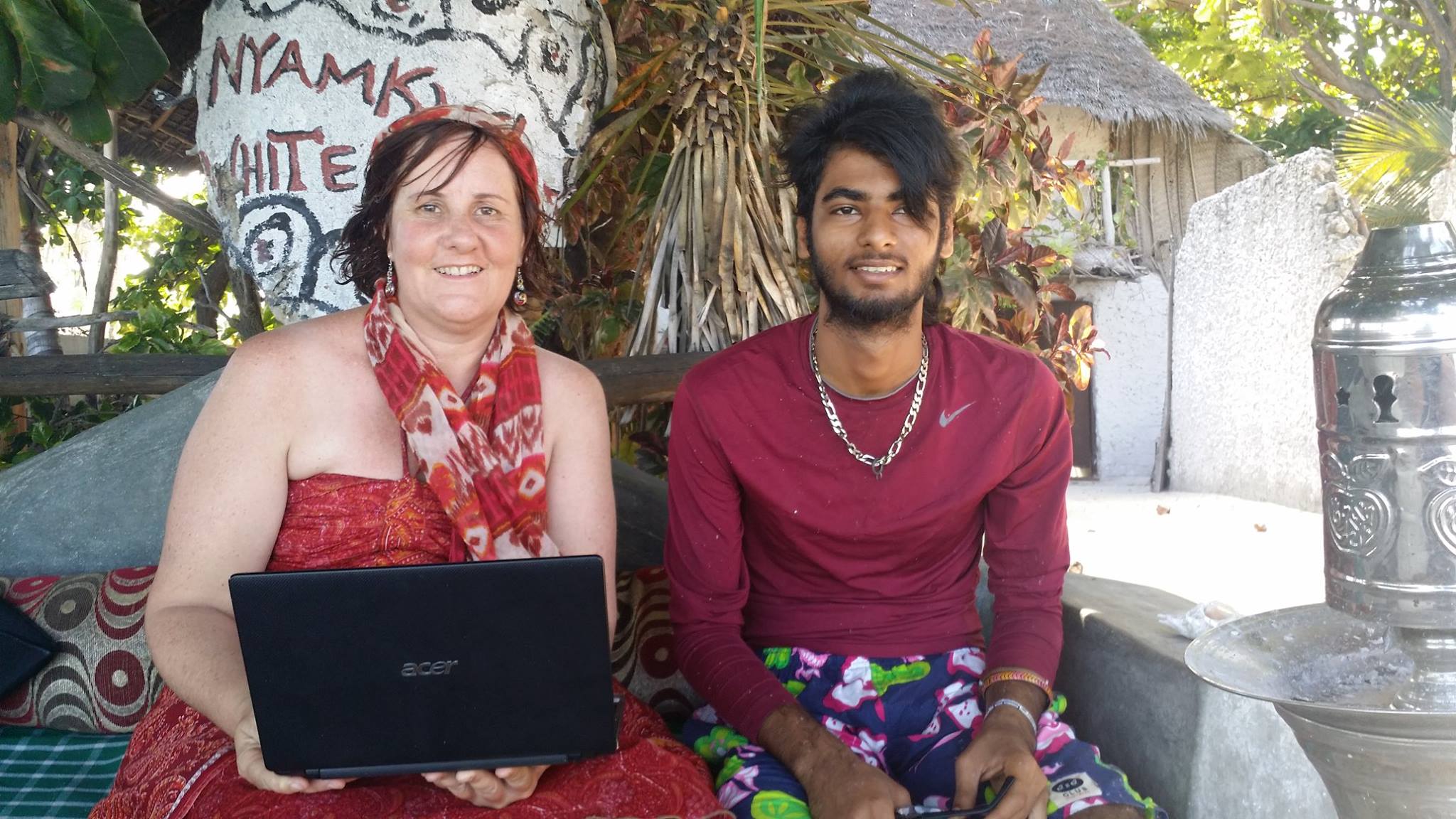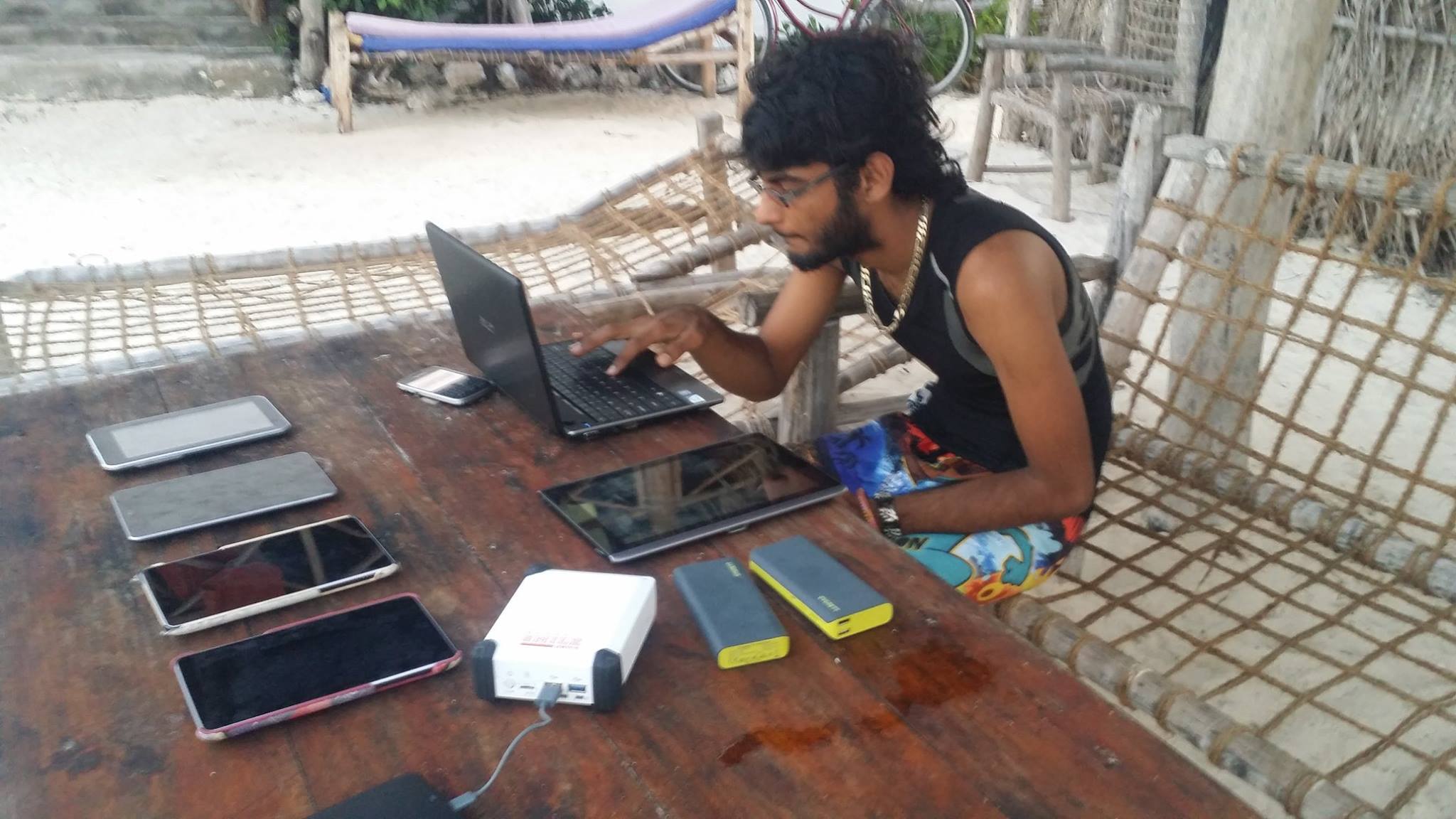Field Testing our approach
Blog post written on a mobile with little to no connectivity
Stage 1 - Making local, culturally relevant content
Hello from Jambiani, on the East Coast of Zanzibar, Tanzania! Our base for the next two months. Initially I have been focusing on building strong relationships with the local communities and finding the influential members of the community who could be ambassadors for the work we are setting out to do. This has brought me to a few individuals I now consider good friends. Benjamin, Howa and Alfonso are not only wonderful people they are a good example of how creative and self driven people really are, I recommend you read the Blog post where they share a little about their stories. I am now training them to make games, ebooks and other educational content. As we expected, they have some great ideas and just needed some tools to get started. We are using Construct 2 to make simple HTML5 games in Swahili. Next we will get started on TWINE and some interactive stories. We have also been taking lots of snapshots and making little eBooks using Web maker, publishing them on twitter under @moodlemuse. In the next few days we start to make video eBooks with H5P -See details in this post- using locally recorded video content from our smart phones.
The questions we are answering in this stage:
- Are community members willing and able to help to create locally and culturally relevant educational content?
- How much training will they need to use modern authoring tools?
- What are the cultural, local and infrastructural challenges to overcome?
Stage 2 - Testing Self-directed and Peer-to-Peer learning
Our central focus has been to start testing various approaches to Self-Directed and Peer-To-Peer learning. We have created 'Analog' versions of the digital tools we are developing so that even at this early stage we can get useful feedback directly from the children. We are using child centered design thinking, making sure that they are central to all we are doing.
Similar to our strategy to find influential community members to be our ambassadors, we have looked for influential and inspiring children to focus our efforts on in this stage so that they can in turn help us reach the children around them. This is core to the questions we want to answer in this stage, can we empower children and their communities to take their learning into their own hands? Finding the best approach to this will be key to us finding a highly scalable solution.
It has not been difficult to find these children, infact the more difficult thing to do was to limit my choice to only two for now, Abraham and Samira (Not their real names). I've now started to test approaches to self-directed and peer-to-peer learning by gently guiding my own daughter, Lilly (8 years old) to take the role of the teacher. She has now been teaching Abraham (9 years old) for a few days, He inturn is spending time progressing through the educational apps on the tablet and then teaching Samira (6 years old). During this stage I am taking a back seat and mainly observing from a distance.
The questions we are answering in this stage:
- How do children teach each other, what are the most successful approaches they use?
- How can we create tools to better empower them to teach each other?
- What tools and approaches can we use to help their self-directed learning?
To Follow the progress of this Tanzanian work, see this blog series where we will be publishing updates








